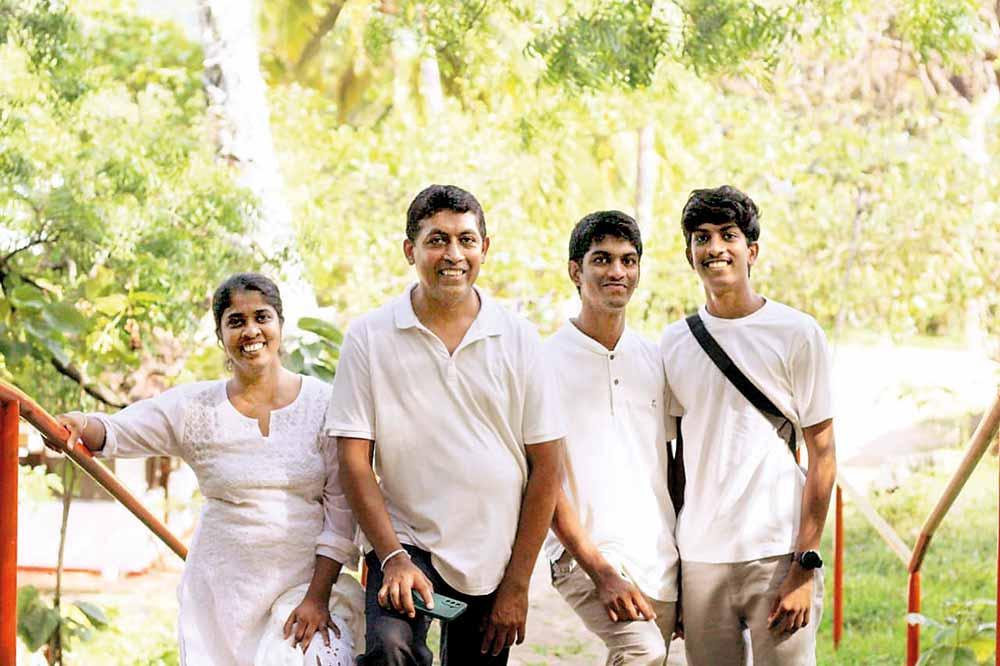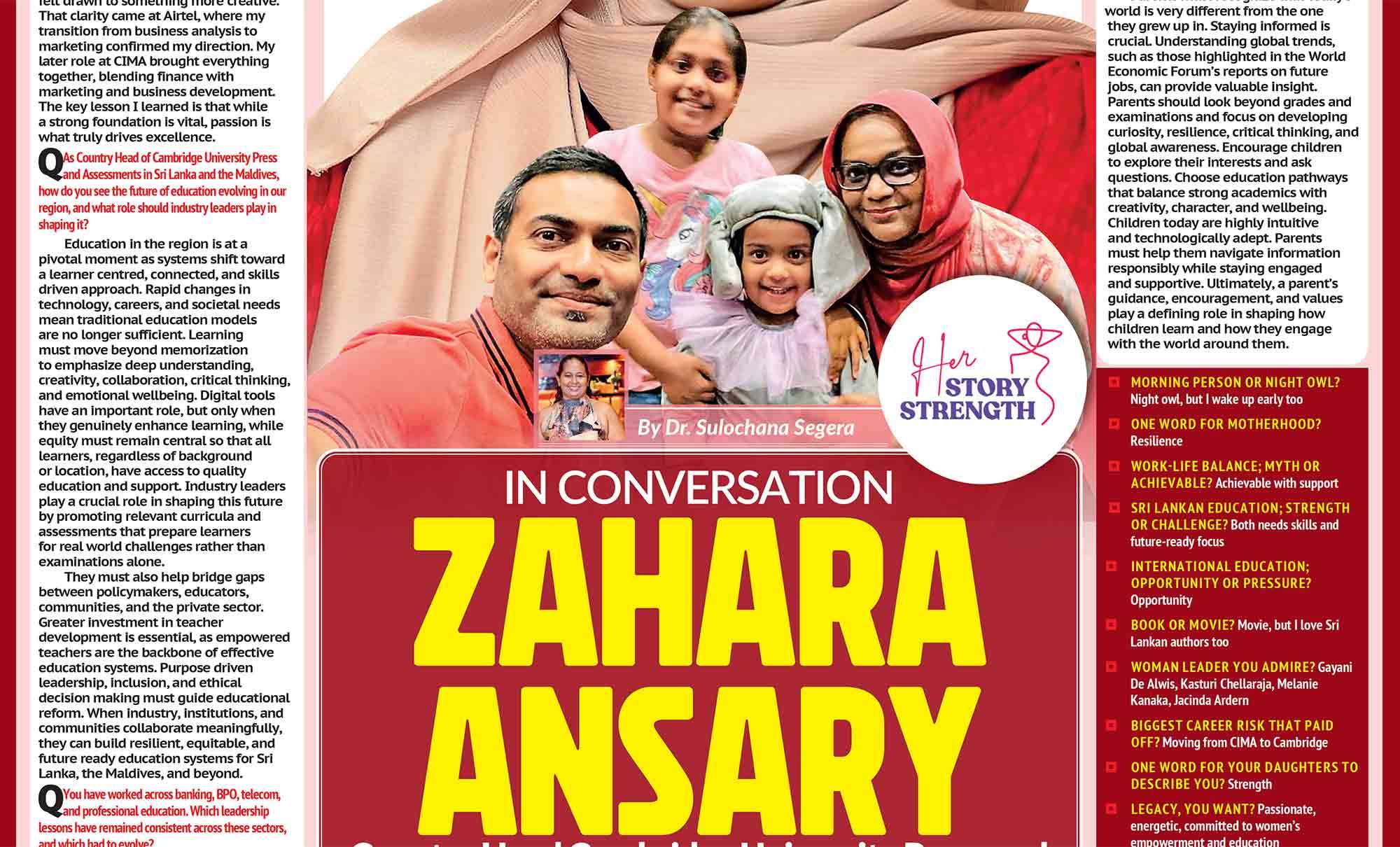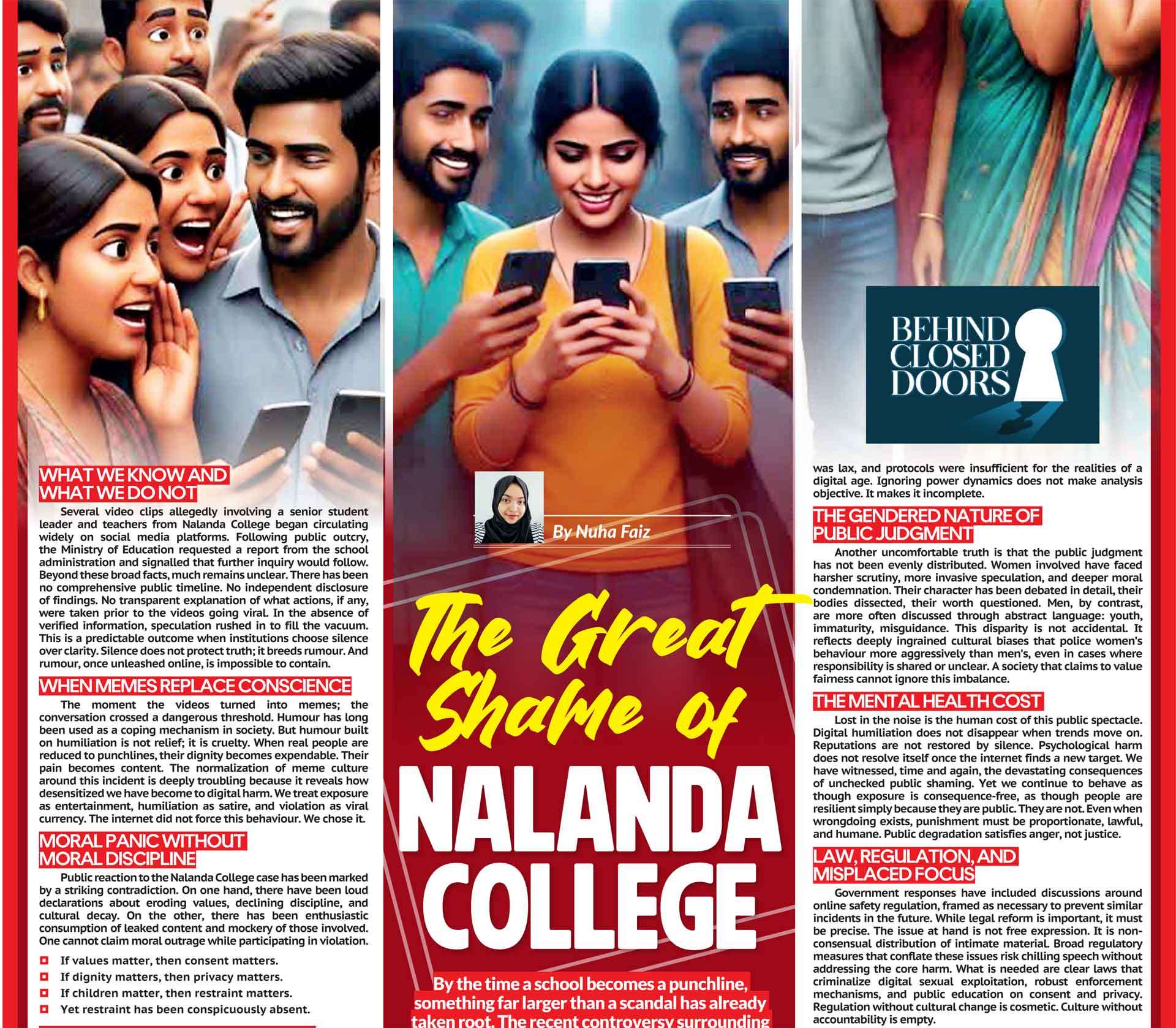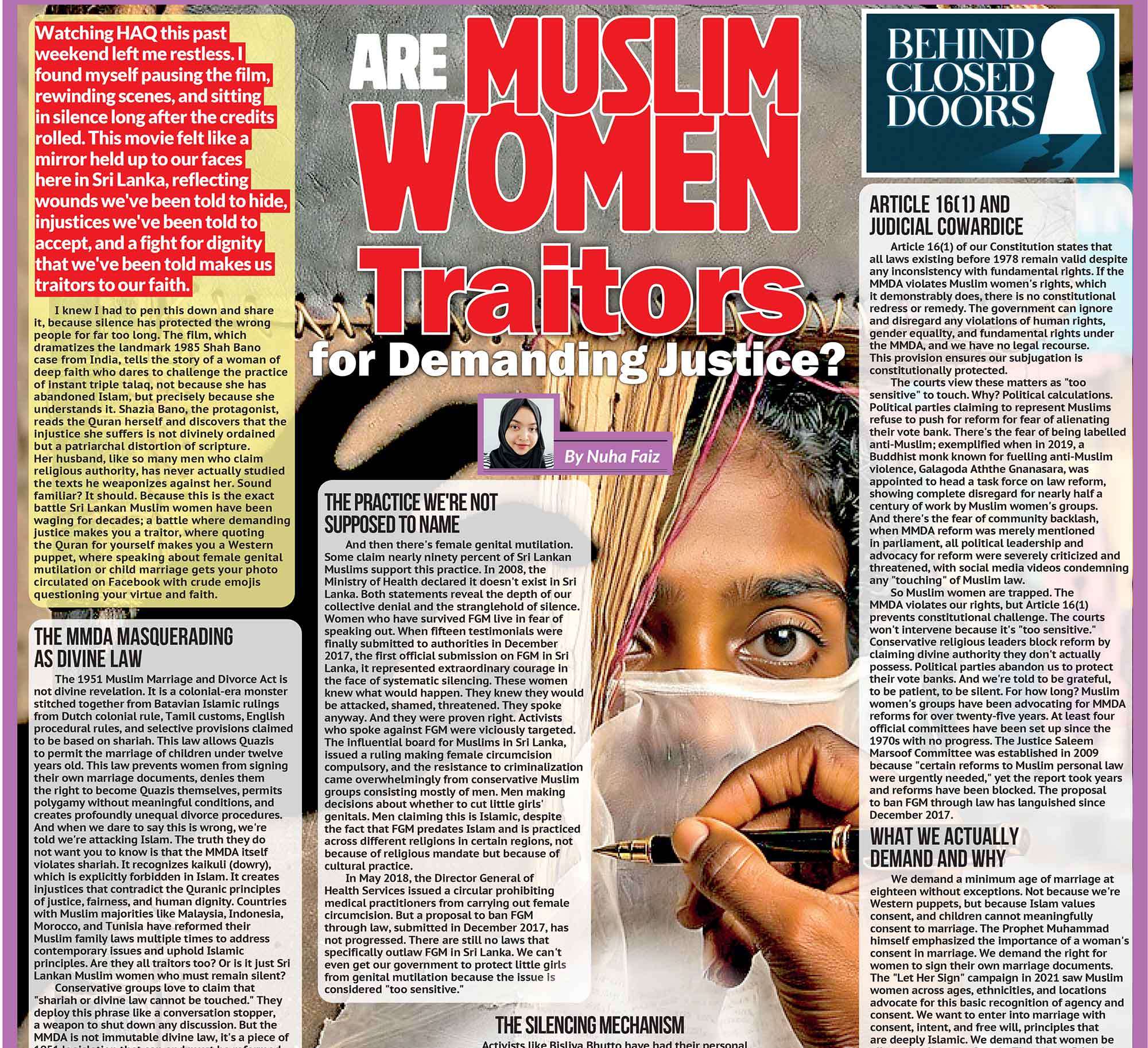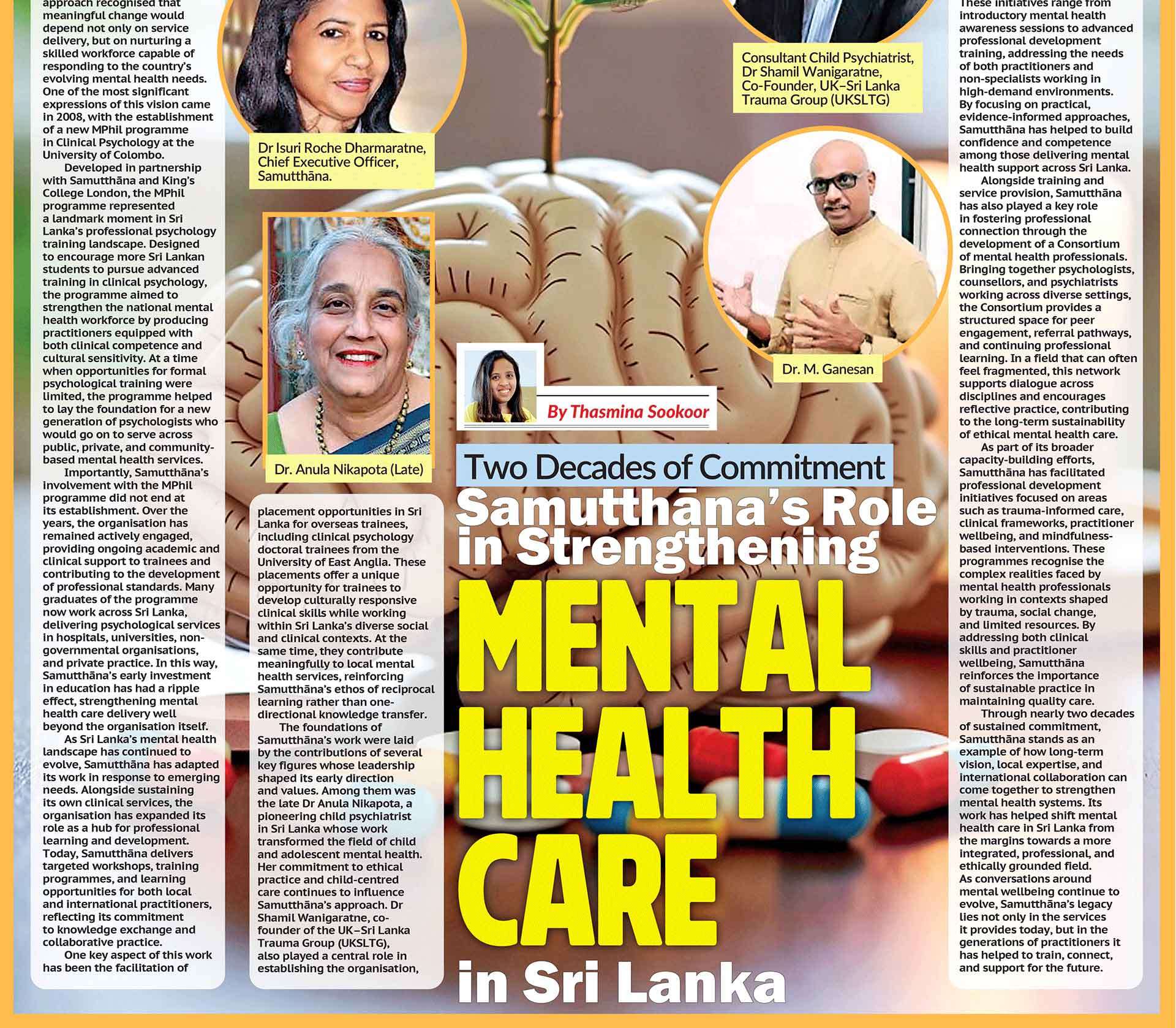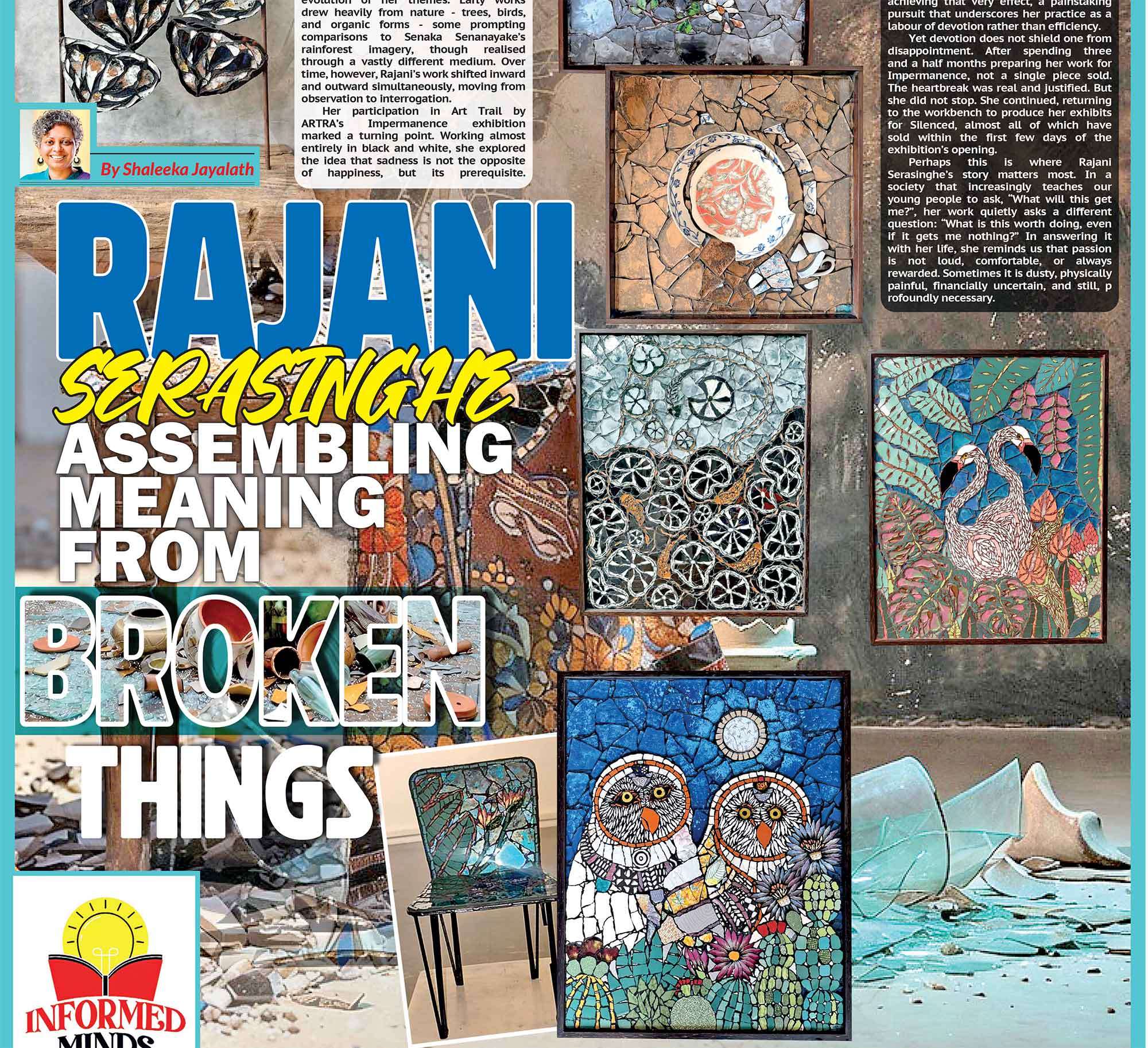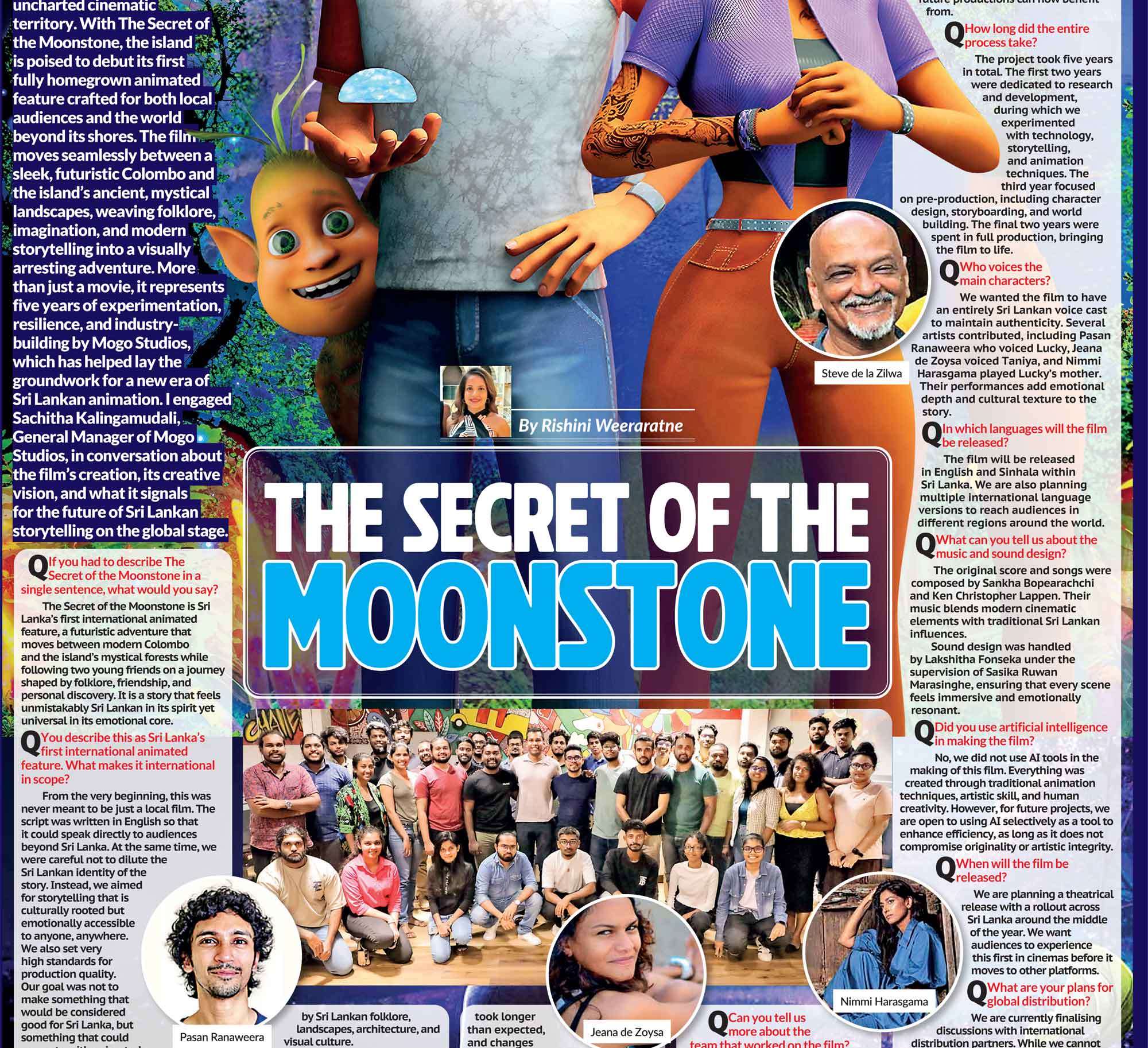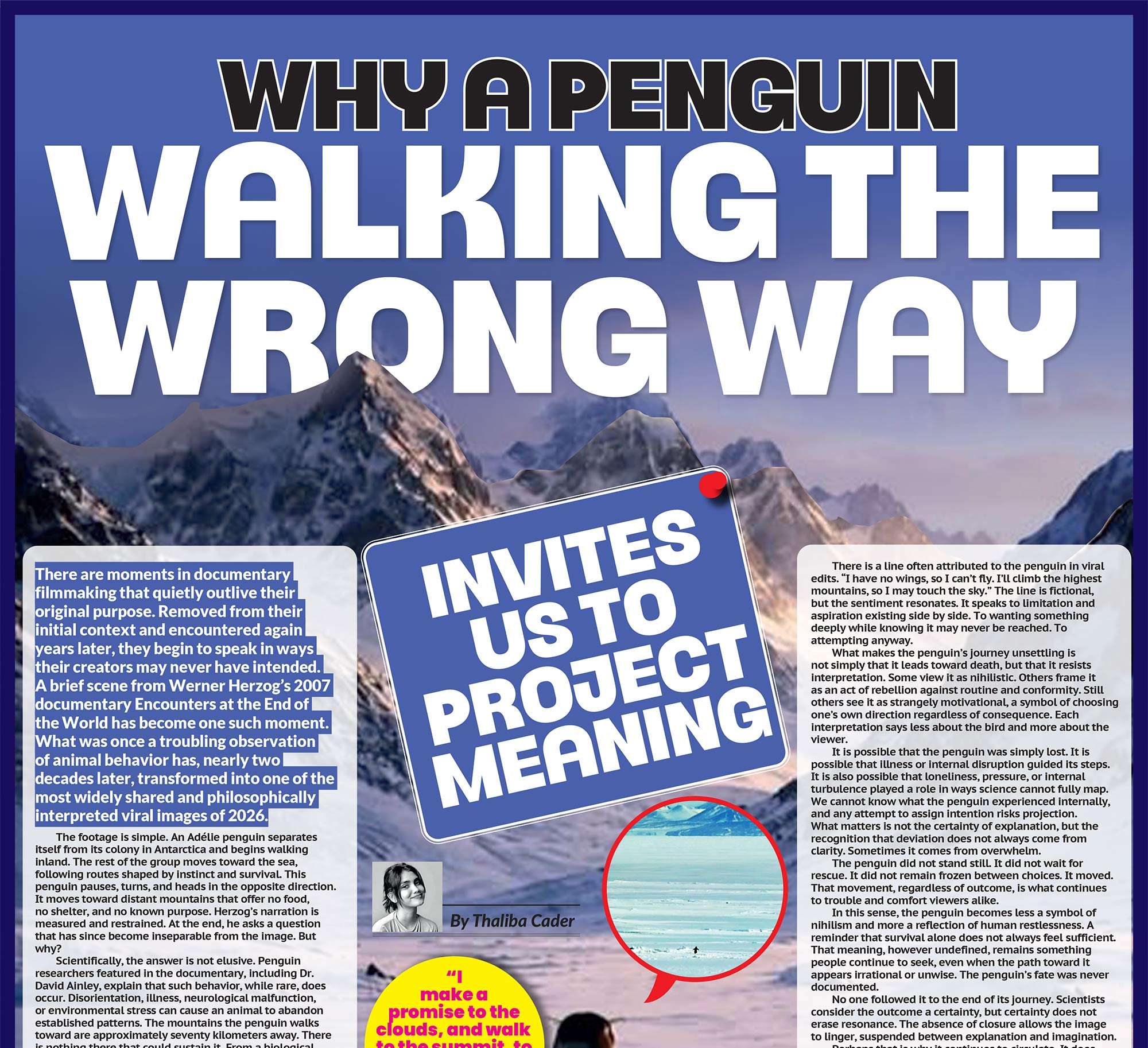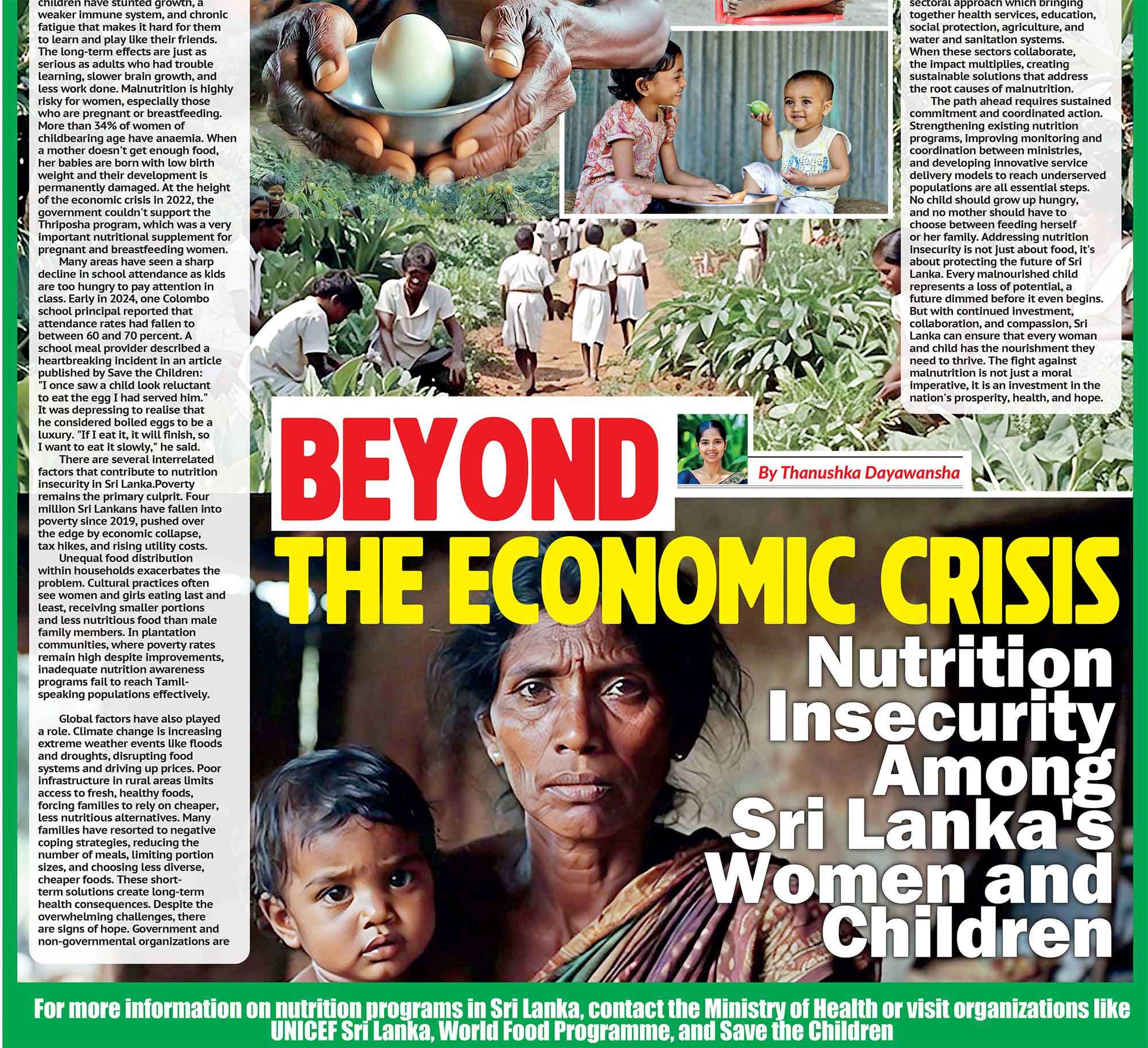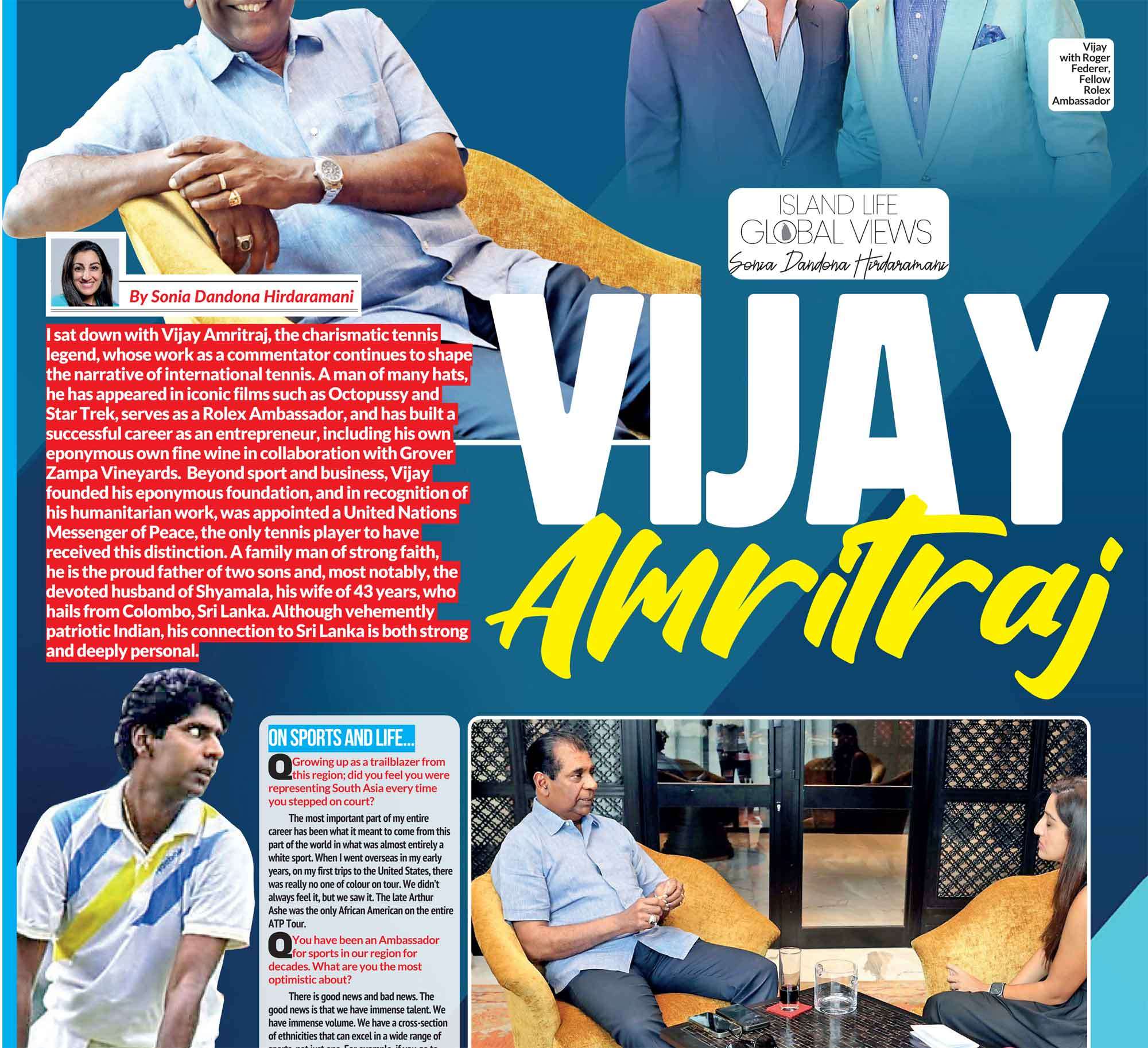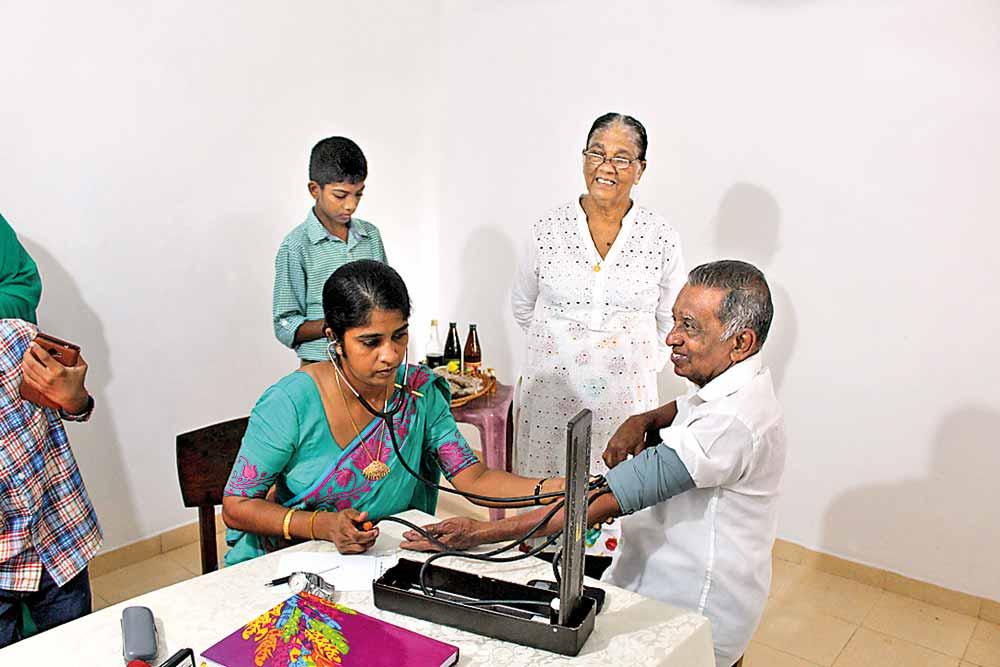
Dr. Himalee De Silva (BAMS, BSc, MD (Ay), PG Dip in Env. Sc, Dip in Yoga, Dip in Psy) is a Senior Lecturer at the Faculty of Indigenous Medicine, University of Colombo, with over 15 years of experience as an academic, researcher, and Ayurveda practitioner. Her career spans diverse fields, beginning in sports physiology at the Ministry of Sports, serving in Sri Lanka’s war-affected North Central Province, and later specializing in Ayurveda Psychiatry at Banaras Hindu University, India, where she also earned a diploma in yoga. In 2018, she founded Veludvara, Sri Lanka’s first Ayurveda-based wellness homestay, combining indigenous knowledge with sustainable tourism.
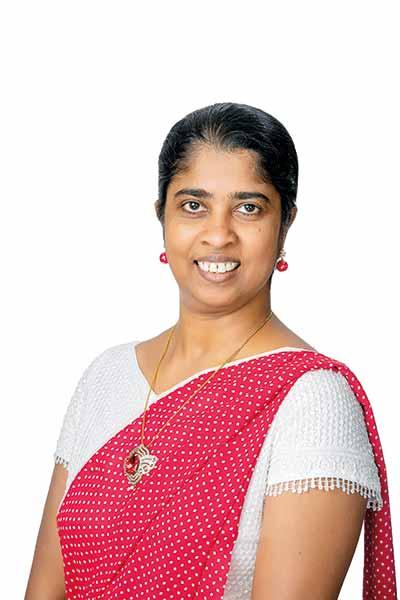 A recipient of Women in Management’s “Member of the Year” award in 2020, she is an advocate for women’s empowerment, environmental health, and holistic living. Currently pursuing her PhD, Dr. Himalee De Silva continues to promote Ayurveda as a global wellness model while balancing her many roles as lecturer, researcher, entrepreneur, mentor, wife, and mother.
A recipient of Women in Management’s “Member of the Year” award in 2020, she is an advocate for women’s empowerment, environmental health, and holistic living. Currently pursuing her PhD, Dr. Himalee De Silva continues to promote Ayurveda as a global wellness model while balancing her many roles as lecturer, researcher, entrepreneur, mentor, wife, and mother.
Q: You have an impressive academic background with multiple degrees across Ayurveda, Science, Environment, and Yoga. What motivated you to pursue such a diverse educational path?
My parents were my greatest influence, instilling the belief that education is the most valuable asset for a woman to establish her place in society. While my personal interest leaned toward science and environmental studies, my father encouraged me to pursue Ayurveda. Over time, I came to see how Ayurveda, psychology, and yoga complemented my scientific training. Together, they gave me a holistic perspective that bridges traditional wisdom with modern science, enabling me to approach wellbeing in a multidimensional way.
Q: You started your career in sports physiology at the Ministry of Sports. How did that experience contribute to your later work in indigenous medicine and Ayurveda?
My role in sports physiology came through the government’s graduate recruitment program in the early 2000s. Though brief, it gave me invaluable exposure to the science of physical fitness, performance, and structured exercise. More importantly, it highlighted prevention as central to health, not just the treatment of illness. That insight laid a foundation for my work in Ayurveda, where lifestyle and holistic wellbeing are at the core.
Q: In 2006, you worked as the Medical Officer in Charge in the North Central Province during the war period. Can you share what that experience taught you about resilience and serving communities in difficult times?
This was one of the most demanding periods of my life. I was a young mother of two infants while working in Thirappane amidst daily risks of bombings.
I personally survived both the Dambulla bus bombing and the Anuradhapura airport attack. With the support of my family, I continued to serve communities despite these dangers. That experience taught me that being a medical officer is not only about clinical care, but also about embodying courage, compassion, and stability for people enduring crisis. It shaped my understanding of resilience as both personal strength and community responsibility.
Q: You specialized in Ayurveda Psychiatry through the Indian Cultural Exchange Scholarship at Banaras Hindu University. Why did you choose this field, and how do you see its relevance today?
My interest in psychology began early, thanks to my mother’s encouragement and my first diploma in psychology before university. Later, as a lecturer, I saw the need for postgraduate expertise in Ayurveda Psychiatry, which no one had yet pursued. Winning the Indian Cultural Exchange Scholarship allowed me to train under distinguished mentors at Banaras Hindu University from 2009–2012. The academic rigor, combined with the spiritual environment of Banaras, deeply shaped me. Today, Ayurveda Psychiatry is more relevant than ever, as global focus shifts toward mental, emotional, and spiritual wellbeing. It offers holistic, culturally rooted approaches to mental health, bridging science with traditional psycho-spiritual healing.
Q: In 2018, you founded “Veludvara,” the first homestay concept for authentic wellness tourism in Sri Lanka. How did the idea come about, and what makes it unique compared to other wellness tourism models?
Veludvara grew out of my wish to create something practical and sustainable that blended my academic knowledge with my family’s entrepreneurial aspirations. Unlike many commercial wellness resorts, Veludvara is built on authenticity. Guests live in a home-like setting where Ayurveda, mindfulness, and Sri Lankan traditions are part of daily life. The model integrates personalized healing, cultural immersion, and family-driven hospitality, making it both nurturing and community-centered. It’s not just about receiving treatments but about learning practices for lifelong wellbeing, while also empowering the next generation through sustainable entrepreneurship.
Q: What challenges did you face in balancing academia with entrepreneurship, especially in a family-run business setting?
The biggest challenge was time, balancing the demands of teaching, research, and administration with building Veludvara. Another was setting healthy boundaries in a family-run business, ensuring personal and professional discussions didn’t blur. But these challenges became opportunities: my academic background gave Veludvara scientific credibility, while entrepreneurship gave me real-world insights to bring back into academia. Over time, I learned integration is key, allowing academia and entrepreneurship to enrich each other while empowering my family to contribute independently.
Q: You wear many hats; lecturer, researcher, medical professional, entrepreneur, mentor, daughter, wife, and mother. How do you manage to balance all these roles while still making time for yourself?
For me, balance comes from harmony rather than perfection. I prioritize what matters most at each stage, supported by my family’s encouragement. Ayurveda and Buddhist principles remind me to simplify life and maintain inner balance. Making time for myself, through mindfulness, simple practices, or quiet reflection, is essential, not optional. I see my different roles as interwoven threads of one journey, each enriching the other.
Q: As someone committed to empowering women through traditional medicine and wellness, what opportunities do you think women can explore in these sectors?
The opportunities are vast. Women can become Ayurveda practitioners, nutrition consultants, yoga trainers, mindfulness coaches, or wellness entrepreneurs. Wellness tourism, herbal product development, and community-based healing initiatives are particularly promising. These sectors are flexible, allowing women to balance family with career while also tapping into the global demand for authentic, holistic wellbeing. More importantly, they allow women to uplift others by preserving cultural wisdom and promoting sustainable health models.
Q: Finally, what advice would you give young women who aspire to break barriers in academia, entrepreneurship, and leadership?
My advice is to never underestimate the power of education, it is the foundation of independence and leadership. Embrace opportunities with courage, even in unfamiliar paths. Seek integration rather than separation between professional and personal roles. Surround yourself with mentors and networks that encourage growth. And above all, remain authentic: success comes not just from achievement, but from the ability to stay grounded, compassionate, and true to your values.
RAPID FIRE ROUND
Ayurveda or Yoga - if you had to choose one?
Ayurveda
If not medicine, what other career would you have chosen?
Anthropology
Tea or coffee?
Neither
The wellness habit you never skip?
Having Kola Kenda as my morning meal
One word your students would use to describe you?
Tough
A woman you admire the most?
My mother
Your guilty pleasure after a long day?
Sitting in silence and watching nature in my backyard, it feels like a true treat to have that time for myself.
Wellness tourism in one sentence?
Travel for any activity that brings balance to body, mind, and spirit.
Success for you is…
Using my knowledge and skills to positively impact people’s lives; through healing, teaching, or creating opportunities for others.
